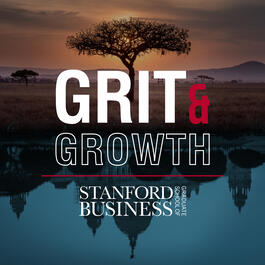
Masterclass: Rule Makers and Rule Breakers in Business Culture
Welcome to Grit & Growth’s masterclass on cross-cultural dynamics with Michele Gelfand, Stanford Graduate School of Business professor in organizational behavior. Gain new insights and strategies for understanding your company’s culture – from tight to loose – and how you can use that knowledge to build cultural intelligence in your organization, navigate interactions, enhance company-wide innovation, and drive business growth. Companies and countries can be a lot like people. Some are tight. Others are loose. Neither is inherently good or bad, according to Michele Gelfand, a leading expert on the impact of organizational culture and the best-selling author of Rule Makers, Rule Breakers: How Tight and Loose Cultures Wire Our World. Gelfand says this important and often invisible force can drive behavior and ultimately performance – which is why she finds the subject so fascinating and why she believes entrepreneurs should pay attention to culture as they build their leadership and business. Key Takeaways Culture matters “If we don't understand culture, we're putting ourselves and our businesses at risk. All cultures have rules, and they're really one of our best inventions because they help us predict each other's behavior and coordinate. They're the glue that keeps us together.” Tight vs. Loose “Tight cultures have strict rules and very reliable punishments for when you deviate from rules. They restrict the range of behavior that's permissible in any context. Loose cultures have weaker rules, their wider range of behavior that's permissible.” Strive for flexible tightness “Loose cultures are more creative, but they don't necessarily scale up. Tighter cultures are better able to implement and scale up, but they're not as good at coming up with these really novel ideas. And so the big trick here is: How do you bring together both of these elements?” Watch out for resistance to cultural change “Try to balance accountability and empowerment, but pay close attention to pushback. Extreme change can be very threatening for people's sense of control, predictability, and order that's really needed in these contexts. And what we know is that we need to manage these sources of resistance.” Listen to Michele Gelfand’s advice to entrepreneurs for creating culturally ambidextrous organizations and learn more about her future research. Don’t forget to take Gelfand’s quiz for determining where you and your team fall on the tight/loose spectrum. See Privacy Policy at https://art19.com/privacy and California Privacy Notice at https://art19.com/privacy#do-not-sell-my-info.
From "Grit & Growth"


Comments
Add comment Feedback